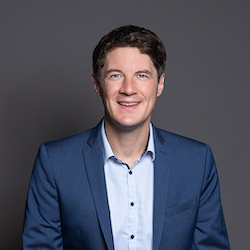This seminar will take place on July 7 at 15:30, online via Zoom (link below)
https://videoconf-colibri.zoom.us/j/95898851772?pwd=OCtRRzZFR3U5elFGeVZueVhkMnFGdz09
Our seminars are free to attend and open to everyone. Please share with whomever may be interested.

Summary
The delegation of decision-making authority from founders to dedicated managers is an important step in the professionalization of startups. However, such delegation changes the distinct nature of startups as workplaces with frequent interaction between founders and their employees. We build on theory of relational disruption in workplaces and theorize how delegation of decision-making authority affects employee retention. We reason that through delegation, employees lose opportunities to learn from founders and influence startup decisions. As a result, relational advantages of startup employment decrease, leading to employee mobility. Moreover, employees are particularly likely to leave after decision-making has been delegated when they are early in their careers and when founder teams are small. Using a sample of 13,737 employees in 1,797 German startups, we find support for our conjectures.
Speaker's bio
Martin Murmann is an assistant professor for Innovation Management and Entrepreneurship at the Business School of Bern University of Applied Sciences. He is also affiliated with the Chair for Entrepreneurship at the University of Zurich and the Leibniz Centre for European Economic Research Mannheim (ZEW Mannheim). His research interests focus on entrepreneurship and innovation. He analyzes interactions between founders and employees in new ventures and is particularly interested in the determinants of hiring in new ventures and the consequences of the first hiring and organizational design choices of new ventures for the firms’ productivity and innovation outcomes. More recently, Martin started new research projects on how founder mental health shapes innovation and employment.
Personal homepage: https://scholar.google.com/citations?hl=en&user=8uszmGwAAAAJ
